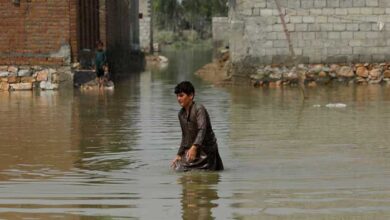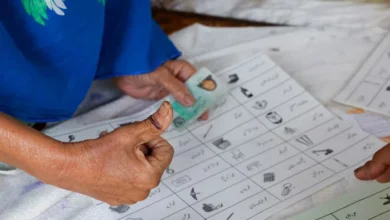A horrifying video emerged from Margat, Balochistan a few days back. A tribal jirga condemned a woman and a man for reasons still unfolding. They were led into the desert and executed at gunpoint. Their killers filmed the act, firing into their bodies as they lay crumpled, then circulated the footage as spectacle and warning.
It was barbaric and cold-blooded. It wasn’t just a murder. It was a message. 11 suspects have been arrested, including the tribal head who ordered the killing. But the question is: what next?
There is no honour in this killing. There never is.
Between January and November 2024, the Human Rights Commission of Pakistan recorded 346 honour-related murders. Human rights defenders estimate the actual number exceeds 1,000 women a year. Most are murdered by male relatives. Few cases see conviction. And the deeper violence, legal loopholes, social complicity, and the quiet withdrawal of justice, remain unchecked.
Consider Farzana Parveen, three months pregnant, stoned to death by her family outside Lahore High Court in May 2014 for marrying without permission. The police stood by. The court she sought could not protect her.
Or Qandeel Baloch, Pakistan’s most visible online figure, strangled by her brother in 2016. He was convicted, only to be acquitted in 2022 after their parents forgave him, exploiting the very legal compromise that Parliament had promised to end.
Or the Kohistan case in 2012, where a jirga ordered the deaths of three girls seen clapping in a wedding video. Years later, convictions were delivered and then reversed.
Or Samia Shahid, a British-Pakistani woman raped and murdered by her ex-husband in 2016. She had married without her family’s approval. Her father and ex-husband were arrested. The case is still pending in the courts.
And this year: Sana Yousaf, 17, gunned down in Islamabad by her cousin. A week later, a 16-year-old girl in Rawalpindi was killed by her father for refusing to delete her TikTok account. Both killings framed as shame. Both now reduced to criminal files. Whether either ends in conviction remains to be seen.
Each one of these stories should have led to sweeping reform. Instead, they have become grim footnotes in Pakistan’s struggle between justice and patriarchy. The state’s response, including rhetorical outrage, filing of FIRs and committee formation, has become so predictable that it now borders on a performance. When there is no follow-through, justice is reduced to a press release.
As Bacha Khan once said, “If you wished to know how civilised a culture is, look at how they treat its women”. Today, that remains the ultimate indictment of the systems that enable and excuse honour killings. A nation cannot call itself civilised when it allows its daughters to be hunted for choosing freedom.
Pakistan has legislated. In October 2016, parliament passed the Criminal Law (Amendment) (Offence in the Name or Pretext of Honour) Act, making honour killings punishable by life imprisonment even if the victim’s family forgives the perpetrator. But the justice system continues to fail. Trials drag on. Complaints are poorly registered. And in this vacuum, illegal jirgas, tribal assemblies with no constitutional or legal standing, continue to operate.
In January 2019, the Supreme Court declared their functioning unlawful, especially in civil and criminal matters. Yet they still pass verdicts and order violence, often against women. Why is the state still allowing them to exist? Parliament must now legislate to unambiguously abolish these forums, particularly in matters of personal liberty and women’s rights. If the state does not dismantle them, it enables them.
What comes after an FIR and condemnation? Far too often, nothing. The killers are caught, or not. Public rage fades. And the victims are buried twice: once by bullets, once by silence.
To break this cycle, Pakistan must call these crimes what they are: premeditated murder. The state must be the complainant in every case. All family pardons must be rendered null in honour-based killings. Parallel justice systems that order violence must be abolished. And the law must be enforced not occasionally but universally, publicly and without fear or favour.
The state must also protect those most at risk: young women asserting themselves, both online and offline. Those who choose their partners. Those who live publicly. The ones we lose first. There must be state-run shelters and witness protection programmes, not just for victims but for survivors and whistleblowers as well.
As Shaheed Benazir Bhutto reminded us, “The fight for women’s rights is not a battle against men, but a fight for equality and justice”. That fight is not theoretical. It is urgent, bloody and happening now.
A woman’s life is not a family’s possession. Her choices are not a man’s disgrace. Her death should never be negotiable. Until the law belongs to her and not to those who kill her, we remain complicit.







